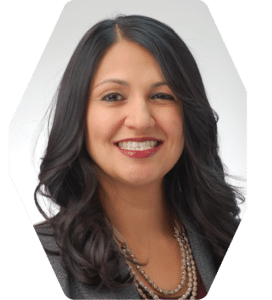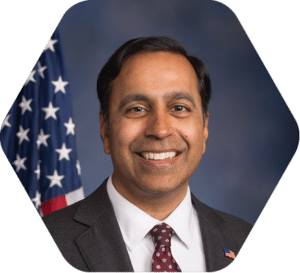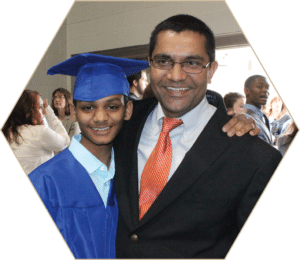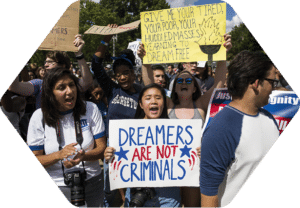Immigration
End of the American Dream

Immigrant advocates argue that it is unjust to punish children by excluding them from the only country they know for the choices their parents.
Anushka Bishen was a chirpy new 25-year-old bride when she first came to America in 2012. She had just left her high-profile career in fashion communications in Delhi to be with her husband in Colorado. As a new immigrant, she was looking forward to a life of adventure.
However, Bishen’s utopian vision dimmed quickly when she found herself increasingly at wit’s end in snowy Colorado on how to keep herself engaged: “I was shocked to find out that being on an H4 visa barred me from even doing volunteer work in bigger corporates in America. It felt as if an entire population of educated and talented immigrants, who were mostly women in the U.S., were dissuaded from leading meaningful lives.”

Anushka Bishen
Bishen swayed between emotions of despair and helplessness: “When my husband would leave for work, I would have nothing to do and sometimes I would just sit and stare at baristas in Starbucks and wonder what it would mean to hold a job…any job.”
Bishen’s life was transformed overnight when the H4 Employment Authorization Document (EAD) visa rule was introduced by the Obama administration, allowing spouses of H1 visa holders to hold jobs:
“It was one of those lonely days when I was going for a swim to keep me ‘occupied’ and a friend pinged me with the news. Tears rolled down my eyes and I was so overwhelmed with emotions that I began scribbling my thoughts in small notebook I carried in my swim bag. I wrote pages and pages about how grateful I felt at that moment and often my tears would smear the ink. That one law changed every aspect of my personal, professional and social life.”
Bishen currently holds a communications job at a trade consortium in Seattle. But the ghost of uncertainty has one again begun stalking her as the Trump administration announced a proposal in December to revoke the H4 work authorization program. The move could render 100,000 EAD holders, predominantly Indians, the largest H4 visa holders, jobless.
Rashi Bhatnagar, who founded a Facebook page on H4 visa spouses in 2014, which has more than 20,000 followers, says, “I get 100-200 messages every day from people who are leading their lives in uncertainty.”
Moving from Florida to New York to Maryland, Patel effortlessly dissolved into the American melting pot. However, this changed when she made the devastating discovery of her undocumented status:
“I was a brilliant student and had great plans about my college, but when I began applying I needed all sorts of paperwork. I went back to my parents and they broke the news of my status. I felt as if my world changed in an instant.”
She says: “It was only then that I understood why my parents worked long hours in Dunkin Donuts, why they held two jobs and worked 16-17 hours a day to make ends meet and why we grew up without a medical insurance or FAFSA (Free Application for Federal Student Aid).”
Undeterred Patel paid out-of-state tuition fee of $11,000 for one semester in her first semester. When the Obama administration introduced the Deferred Action for Childhood Arrivals (DACA) program, which gave relief from deportation to foreign-born individuals who came to the United States before they were 16, provided they did not have a criminal record, she applied for it.
However, after Pres. Donald Trump rescinded DACA, Patel was thrown into a limbo again. Instead of joining a pharmacology school, she is working at her family owned convenience store: “My DACA expires in September and I have no idea what happens after that. If my status is declared as illegal, I won’t know where to go as I have known the U.S. as my only home.”
Bishen and Patel, like millions of other immigrants in the United States, are caught in a quagmire as the Trump administration rips up the immigration compact that has guided the country for decades.
Dreamers at Risk
The media has focused extensively on the Trump administration’s harsher policies against undocumented immigrants, travel bans from Muslim majority countries, and building a wall at the southern border.

Dr. Amy Bhatt
Dr. Amy Bhatt, associate professor of Gender and Women’s Studies at the University of Maryland, Baltimore, says: “I think there is a problem with thinking of this as just a H-1B or H-4 problem. The current administration is attacking immigrants on all fronts, from Dreamers and DACA recipients, to people who have been living and contributing to the U.S. economy without documentation, to refugees and asylum seekers.”
Nearly 800,000 Dreamers are at risk of deportation as a result of DACA being rescinded.
The Pew Research Center estimated the undocumented Indian population at 500,000 in 2014, the fourth highest in the country. According to U.S. Customs & Immigration Service (USCIS) data, more than 7,000 Indians have received DACA deferrals.
Immigrant lawyers, however, believe that many Indians eschewed applying for DACA protections. Suman Raghunathan, executive director, SAALT (South Asian Americans Leading Together), a civil rights non-profit for South Asian immigrants, says, “While DACA eligibility is high in our communities, many have been cautious about applying and those who have are constantly worried about securing renewals every few years so they can remain in the country. This is why our application numbers look very low.”

U.S. Congressman Raja Krishnamoorthy
Congressman Raja Krishnamoorthi, who represents Illinois’ 8th district, estimates that 17,000 individuals from India are eligible under the program.
Aging Out
Indian immigrant advocates also point to the backlog of green card applications, which places many families in limbo for 7 to 10 years. In the process, children who turn 21 “age” out of status, as they are no longer treated as dependents.
Sandeep Battula was 6 when he arrived legally in the United States with his family in 2003. His father, who was on an H1B visa applied for permanent residency in 2008. While the family awaited the coveted green card, Sandeep who turned 21 this year, aged out of the process, as adult children are not eligible under their parent’s application.
For Battula, who grew up in Columbus, Ohio, and knows it as his only home, the discovery has been jarring and painful:
“I only got to know this past August that I am not eligible to apply for any jobs on H4 visa. Growing up, I always felt like all other American kids and pursued the dream of holding a great job after my college. I never bothered to find out or suspected that I would have different rights from all the other kids I grew up with. That’s the sort of belongingness I felt to this country. But when my dad informed me that I could not apply for jobs on my current visa I was shattered.”

Sandeep Battula
Battula has filed for change of status to an F1 student visa. He says, “I have two main worries – one that at 21 I should be holding a job and not getting involved in paperwork to ensure I can be here and another that on an F1, I can barely afford the college here.”
Ramesh Punja, who came to the United States 20 years earlier, related in an article in the American Statesman his daughter Himani’s dilemma after she aged out while he awaited a green card: “Unfortunately, due to immigration laws, she was unable to stay in the United States due to massive backlogs. This is a problem that affects thousands of immigrant children…. Legal immigrant children do not qualify for the Deferred Action for Childhood Arrivals program and the proposed DREAM Act. The fees and paperwork involved in visa extensions — for hiring a lawyer, securing renewals and simply waiting for a green card — are financially draining and very stressful, especially when there is a fear of potentially being denied an extension to stay in the United States.”

Demonstrators protest against the Trump administration’s decision to rescind the Deferred Action for Childhood Arrivals program, outside of the White House in Washington. Photo: Zach Gibson/ New York Time
Kishore Kumar, a Philadelphia resident, who also has “aged out,” is distressed that the debate over DACA ignores the plight of grown-up children like himself: “It’s unfair that undocumented kids could still apply for DACA, while we who arrived legally and did everything by the book are not even given that privilege.”
He too has switched to an F1 student visa and holds a part time position: “I only have two options — either to go to school, which is going to be nightmarishly expensive, or get a job on F1 OPT (Optional Practical Training) for 1-3 years and seek a transfer to H1B visa. Both of these are not going to be easy, so yes we do have a challenging road ahead.”
Bad Hombress
Immigrant advocates argue that it is unjust to punish children by excluding them from the only country they know for the choices their parents made.

Arti Patel
Says Arti Patel: “I was brought to the U.S. as a kid by my parents and I had no say on what was happening. I have been a law abiding, brilliant student and have done everything possible to make my parents and America proud. To penalize us for no fault of ours would be inhuman.”
Mark Kuczewski, Director, Neiswanger Institute for Bioethics & Health Policy, Loyola University Chicago and an advocate for DACA says, “This issue directly impacts Indian Americans who work hard and contribute to our community and our economy, and who know no other home but the United States. Deporting these individuals would rip apart families and deprive our economy of talented individuals.”
Zarna Patel, a second-year medical student at Loyola University Chicago’s Stritch Medical School, has stepped out from the shadows to create awareness about Dreamers and why they should be given a fair chance. In a powerful blog on 90days90voices.com, she wrote: “For 21 years, America has been home. I’ve worked hard, succeeded in school, volunteered in marginalized and underserved communities, and advocated for the voiceless. As a child I learned about the rich history of our country while I pledged allegiance to the stars and stripes every day at school. Americans from all walks of life are my brethren, and I’ve never wished anyone harm, or taken any opportunities away. America isn’t just a home; it’s actually the only home I’ve ever known.
Nevertheless, Patel added: “America has had a hard time accepting me. I’ve been called illegal, alien, criminal, and a ‘bad hombre.’ Inherently, I’m seen as something that is wrong — a blemish, something sacrilege, unwanted, and deeply feared from the very people I hope to serve. In the end, it’s dehumanizing.”

Rekha Sharma- Crawford
It is a sentiment only too well known to Kansas City based immigration attorney Rekha Sharma-Crawford: “I have a number of undocumented Indians as my clients who are unwilling to speak for fear of judgment and historically this has been the case.”
“The day we understand the power we hold as a community and as a voting block, we may actually be able to be ‘the change we want to see in the world.’”

You must be logged in to post a comment Login